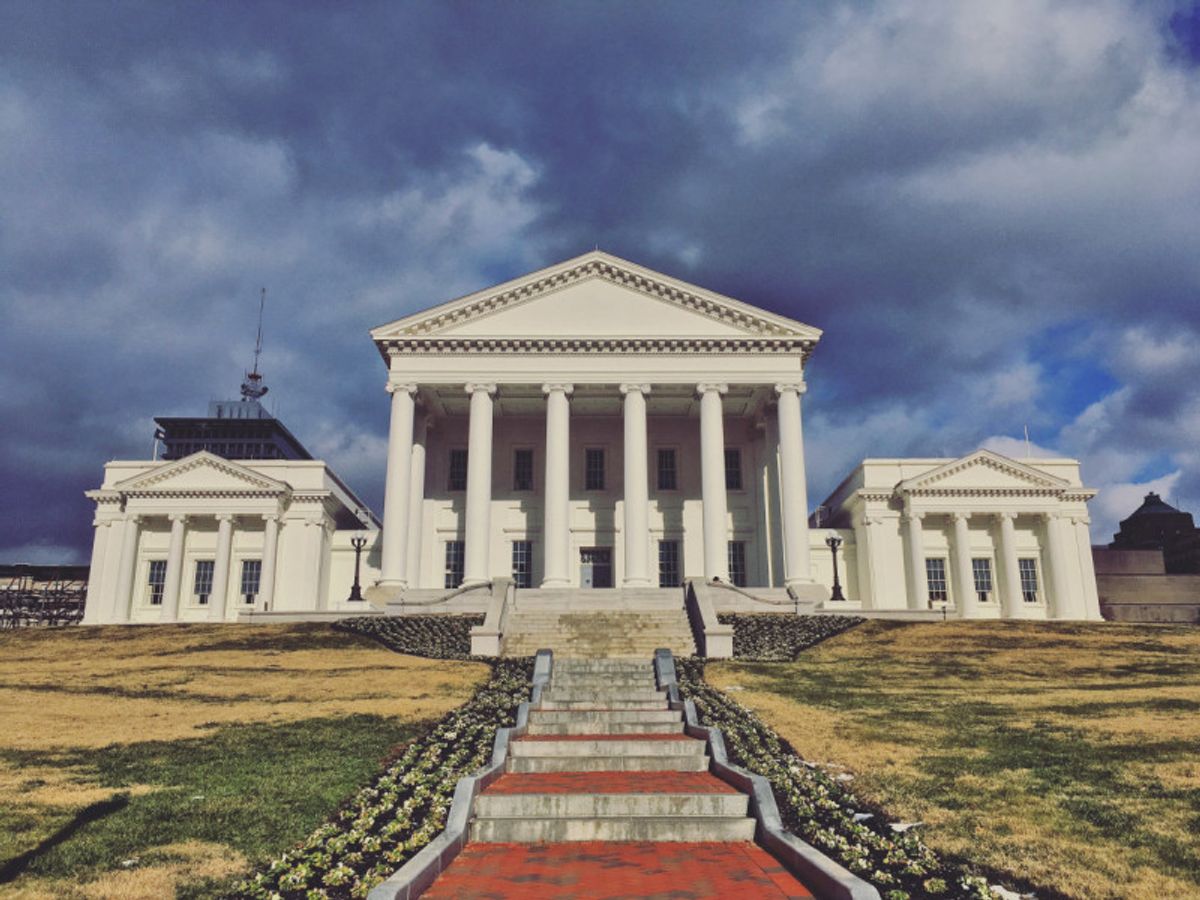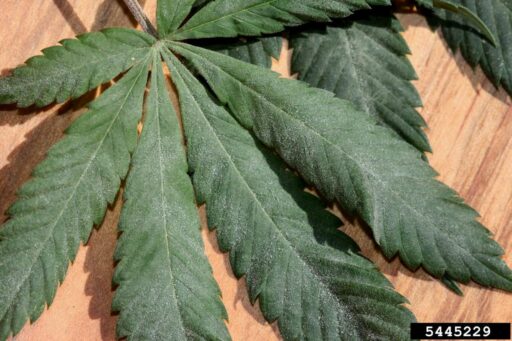Virginia’s marijuana laws have undergone significant changes since 2018, marking a progressive shift in the state’s stance on cannabis. The evolution from medical to recreational legalization and the establishment of regulatory frameworks have set the stage for a burgeoning cannabis industry. This article explores the pivotal moments and legislation that have shaped the current marijuana landscape in Virginia.
Key Takeaways
- Virginia’s medical marijuana laws were established with SB 76, expanded by SB 7, and further broadened in 2017 to include CBD and THCA oil for epilepsy.
- Recreational marijuana was legalized in 2021 through HB 2312, with anticipation for legal sales to commence in 2024.
- The Virginia Cannabis Control Authority was tasked with regulatory responsibilities, amidst delays in establishing a commercial market.
- Residents of Virginia can possess up to 1 ounce of usable marijuana and cultivate up to 4 plants at home, with impacts on employment discrimination and hiring practices.
- Future legislative actions may include sentence modification and resentencing, while advocacy efforts continue to push for further reform.
The Foundation of Medical Marijuana Laws in Virginia
SB 76: The Beginning of Medical Marijuana Legalization
In a significant shift in policy, Virginia took its first steps towards medical marijuana legalization with the passage of SB 76. This pivotal legislation laid the groundwork for future reforms, marking a departure from the state’s previously stringent stance on cannabis use.
SB 76 was a milestone that catalyzed the change in Virginia’s approach to marijuana, setting the stage for subsequent expansions of medical cannabis laws. It was a response to the growing recognition of marijuana’s potential therapeutic benefits and the need for legal frameworks to allow patients access to this treatment option.
The enactment of SB 76 was not just a legal transformation; it represented a broader shift in societal attitudes towards cannabis and its medicinal value.
While SB 76 was foundational, it was just the beginning. The evolution of Virginia’s marijuana laws continued with further legislative actions, each building upon the last to create a more comprehensive and compassionate medical marijuana program.
Expansion of Medical Marijuana with SB 7
In a significant move to broaden the scope of medical marijuana, the Virginia legislature passed SB 7, marking a pivotal moment in the state’s approach to cannabis policy. This legislation extended the benefits of medical marijuana to a wider range of medical conditions, reflecting a growing recognition of its therapeutic potential.
The expansion of qualifying conditions under SB 7 represented a more inclusive and compassionate healthcare strategy. Patients suffering from various ailments could now seek relief through medical cannabis, which was previously restricted to a narrow set of diagnoses.
- Alzheimer’s disease
- Amyotrophic lateral sclerosis (ALS)
- Cancer, with specific symptoms or treatment side effects
The inclusion of these conditions opened up new avenues for patients seeking alternative treatments, and underscored the evolving perspective on cannabis within the medical community.
The legislative changes also signaled a shift towards a more progressive stance on health and wellness, with lawmakers acknowledging the need for diverse treatment options. As Virginia’s medical marijuana program continued to evolve, it became a model for other states considering similar reforms.
Legalization of CBD and THCA Oil for Epilepsy
In 2017, Virginia took a significant step by legalizing cannabidiol (CBD) and tetrahydrocannabinolic acid (THCA) oil for patients with epilepsy. This move was in response to the growing evidence of the effectiveness of CBD in treating seizure disorders, especially in children. The state’s decision was further bolstered by the FDA’s approval of Epidiolex, which contains a purified form of CBD for the treatment of seizures associated with Lennox-Gastaut syndrome or Dravet syndrome.
The legalization marked a pivotal moment for patients seeking alternative treatments for epilepsy and highlighted the state’s progressive stance on medical cannabis.
By 2018, the law expanded to include patients with any diagnosed condition or disease, reflecting a broader acceptance of the potential therapeutic benefits of cannabis-derived products. Virginia’s approach to medical cannabis continued to evolve, setting the stage for future legislative developments in the realm of recreational use.
The Landmark Year: Recreational Marijuana Legalization
Passage of H. 511: A Shift Towards Recreational Use
The passage of H. 511 marked a significant shift in Virginia’s approach to marijuana, moving away from strict prohibition and towards a more regulated framework. This legislative action laid the groundwork for the decriminalization of marijuana possession and set the stage for the development of a legal recreational market.
- Decriminalization of marijuana possession for personal use
- Establishment of fines as an alternative to criminal penalties
- Creation of a framework for future legalization and regulation
The new law represented a pivotal moment in Virginia’s history, as it acknowledged the changing public sentiment towards cannabis and the need for reform in drug policy.
While the law did not immediately legalize the sale of recreational marijuana, it was a clear indication of the state’s intent to move in that direction. The anticipation of legal sales, slated to begin in 2024, has sparked discussions on the potential economic impact and the importance of establishing a responsible and equitable market.
The Role of HB 2312 in Legalizing Recreational Cannabis
The passage of HB 2312 marked a significant milestone in Virginia’s cannabis legislation, establishing a framework for the legalization of recreational marijuana. This bill set the stage for a regulated and taxed cannabis market, aiming to boost the state’s economy while ensuring public safety and social equity.
Key provisions of HB 2312 include:
- Decriminalization of marijuana possession for adults
- Establishment of a licensing system for cannabis businesses
- Allocation of tax revenue to public health and education
The bill’s emphasis on social equity is particularly noteworthy, as it seeks to rectify past injustices associated with marijuana convictions by prioritizing license applications from affected communities.
While the bill has been celebrated for its progressive stance, it also faces challenges related to regulatory details and market readiness. The Virginia Cannabis Control Authority is tasked with overseeing the complex process of transitioning to legal sales, which are anticipated to begin in 2024.
Anticipating the Start of Legal Sales in 2024
As Virginia prepares for the commencement of legal cannabis sales in 2024, stakeholders are closely monitoring the development of the state’s regulatory framework. The anticipation is high among residents and businesses alike, with the promise of a new, taxable revenue stream on the horizon.
The establishment of a commercial market has been deliberately delayed to ensure a comprehensive regulatory system is in place. This strategic approach aims to foster a responsible and sustainable cannabis industry in Virginia.
While the exact details of the regulatory structure are still being finalized, the following points highlight key areas of focus:
- Development of licensing procedures for cannabis businesses
- Implementation of safety and quality control measures
- Establishment of taxation policies and revenue allocation
- Creation of guidelines for legal possession and consumption
The success of Virginia’s cannabis market will largely depend on the effectiveness of these regulations and the ability of businesses to adapt to the new landscape.
Regulatory Changes and Market Development

Virginia Cannabis Control Authority’s New Responsibilities
With the shifting landscape of cannabis legislation in Virginia, the Virginia Cannabis Control Authority has been tasked with new responsibilities. These include overseeing the transition of regulatory oversight from previous bodies to a centralized authority, ensuring compliance with state cannabis laws, and facilitating the development of a robust legal cannabis market.
- Transition of regulatory oversight
- Compliance enforcement
- Market development facilitation
The Authority’s role is pivotal in shaping the future of the cannabis industry in Virginia. It is responsible for setting the standards for licensing, product safety, and consumer protection. The establishment of this body marks a significant step towards a more structured and regulated cannabis market in the state.
The Virginia Cannabis Control Authority’s new responsibilities are integral to the establishment and regulation of the state’s burgeoning cannabis industry, aiming to provide a safe and legal framework for both businesses and consumers.
Establishing a Commercial Market: Delays and Preparations
As Virginia prepares to establish a commercial cannabis market, the process has been met with both anticipation and setbacks. Delays in legislative approvals and regulatory framework development have pushed back the timeline for the market’s opening. The Virginia Cannabis Control Authority has been tasked with a significant role in shaping the market, yet the intricacies of regulation are still being ironed out.
- The establishment of a commercial market is contingent upon the creation of a robust regulatory system.
- Preparations include implementing U.S. FDA standards to product testing requirements.
- A registry for retailers is also in the works, aiming to ensure compliance and safety.
The final version of the regulation, which will have a profound impact on the market’s operation, is expected to be approved by the General Assembly’s Administrative Regulations Review Subcommittee in the spring.
The anticipation of legal sales commencing in 2024 remains high, but the industry is cautiously watching the legislative dynamics, with the Governor’s stance playing a pivotal role in the market’s future.
Governor’s Stance and Legislative Dynamics
The governor’s position on cannabis has been a balancing act, aiming to uphold the will of the voters while navigating the complexities of legislative processes. This stance has been crucial in shaping the regulatory landscape for cannabis in Virginia.
- The governor has expressed support for the legalization, aligning with public sentiment.
- Legislative dynamics have been influenced by advocacy groups and economic considerations.
- A cautious approach has been taken to reconcile differing opinions within the state legislature.
The governor’s approach ensures that the evolution of cannabis laws proceeds with a measured and responsive attitude to the needs and opinions of Virginia’s residents.
The legislative process has seen proposals aimed at refining the control over cannabis businesses, indicating a path to passage that balances equity and local governance.
Implications for Residents and the Economy
Possession Limits and Home Cultivation Rules
In Virginia, the evolution of marijuana laws has led to specific regulations regarding personal use and cultivation. Adults aged 21 and over are permitted to possess up to one ounce of usable marijuana and are allowed to grow up to four plants per household. These plants must be labeled with identification information, out of sight from public view, and inaccessible to minors.
Municipalities retain the right to opt-out of allowing home cultivation, making it essential for residents to verify local ordinances. The cultivation of more than the allotted number of plants, or possession beyond the legal limit, can result in legal penalties.
The establishment of possession limits and home cultivation rules reflects a significant shift in Virginia’s approach to marijuana, balancing individual freedoms with community standards and legal enforcement.
Impact on Employment Discrimination and Hiring Practices
The evolution of marijuana laws in Virginia has significant implications for employment discrimination and hiring practices. Employers must navigate the complexities of cannabis policies while balancing workplace safety and employee rights. Notably, the legislation allows employers to prohibit medical patients from performing tasks while under the influence of cannabis, aligning with safety concerns.
- Employers are adapting to new regulations that protect employees’ off-hours cannabis use.
- Hiring practices are evolving to accommodate lawful cannabis consumption, with some states setting precedents.
- Virginia businesses are watching closely as other states implement protections for cannabis users.
The intersection of cannabis legalization and employment law is creating a new landscape for both employers and employees. As Virginia prepares for the start of legal cannabis sales, the impact on workplace policies continues to unfold.
Economic Prospects of the Cannabis Industry in Virginia
The legalization of recreational marijuana in Virginia is poised to create a significant economic impact. The commencement of legal sales in 2024 is expected to stimulate job creation, tax revenue, and business opportunities. The state’s approach to establishing a commercial market has been methodical, with a focus on regulatory frameworks to ensure a responsible and sustainable industry.
- Job Creation: New businesses in cultivation, distribution, and retail will contribute to employment growth.
- Tax Revenue: Legal sales will generate tax income for state and local governments.
- Business Opportunities: Entrepreneurs and investors are eyeing the Virginia market for potential ventures.
The economic ripple effect of the cannabis industry extends beyond direct market participants. Ancillary businesses such as security, legal services, and technology providers will also benefit from the industry’s expansion.
While the exact figures are yet to be determined, the anticipation around the cannabis market is high. Delays in establishing the commercial market have not dampened the enthusiasm of potential stakeholders, who are preparing for a robust entry into the sector.
Future Prospects and Legislative Actions
Potential for Sentence Modification and Resentencing
With the evolution of marijuana laws in Virginia, a significant number of individuals stand to benefit from sentence modification and resentencing. More than 1,200 people could see their sentences reevaluated due to offenses that are no longer criminalized under the new legislation.
The introduction of a state-initiated resentencing process aims to address the consequences faced by those incarcerated or under supervision for marijuana-related offenses.
The proposed system would streamline the process, allowing for efficient resentencing hearings. This includes the possibility for incarcerated individuals to have their sentences reduced or even vacated. Here’s a breakdown of the affected individuals:
- 476 individuals currently serving a sentence for an eligible offense
- 682 individuals with eligible co-mingled offenses
- 107 individuals awaiting sentencing for an eligible offense
The Last Prisoner Project advocates for a court-initiated process that minimizes the burden on the courts and ensures timely reviews and decisions. This approach could significantly alleviate the impact of past marijuana convictions on the lives of many Virginians.
Advocacy and Ballot Initiatives: The Push for Further Reform
In the wake of legalization milestones, advocacy groups have not slowed their efforts to shape Virginia’s cannabis landscape. The Marijuana Policy Project and other organizations continue to champion reforms that align with public sentiment, as evidenced by the majority of voters supporting legalization across all states.
- Advocacy groups like Americans for Safe Access and the Drug Policy Alliance are at the forefront, pushing for comprehensive policy changes.
- Recent legislative proposals have sparked debates on cannabis justice and liberty, highlighting the need for ongoing reform.
- Grassroots movements are gaining traction, with initiatives such as the Cannabis Justice Fund aiming to address disparities in the cannabis industry.
The journey towards a more equitable cannabis policy is ongoing, and advocates are using every tool at their disposal to ensure that progress continues.
Despite the progress, recent actions by state officials, such as the Virginia governor’s veto of a bill concerning cannabis and child welfare, signal that challenges remain. Advocates are preparing for a series of ballot initiatives, hoping to secure a future where cannabis policy is reflective of the will of the people.
Comparative Analysis with Other States’ Cannabis Policies
As Virginia continues to shape its cannabis policies, a comparative analysis with other states reveals a diverse landscape of legalization efforts. The National Conference of State Legislatures provides an extensive overview of the national landscape, highlighting the varying degrees of legalization or decriminalization, as well as initiatives for record clearance for cannabis-related offenses.
- California pioneered the modern cannabis movement with its early and mid-1990s legislation.
- As of 2023, 24 states have enacted adult-use cannabis legalization.
- A total of 24 states have also passed laws specifically for cannabis record clearance.
Many states have implemented reciprocity laws, recognizing medical cannabis registrations from other states, which could serve as a model for Virginia. The state’s approach to cannabis justice is also informed by recent trends, with Massachusetts’ pardon program being a notable example of progress in the realm of cannabis justice.
Conclusion
The evolution of Virginia’s marijuana laws in 2018 marked a significant shift in the state’s approach to cannabis regulation. With the passage of H. 511, Virginia took a bold step by legalizing the use of recreational marijuana, building upon previous legislation that had already established a foundation for medical marijuana use. This progression reflects a broader trend of growing acceptance and decriminalization of cannabis across the United States. As Virginia prepares for the legal sales of recreational cannabis in 2024, it stands as a testament to the changing perceptions and the potential for further legislative reforms in the future.
Frequently Asked Questions
What was the significance of SB 76 in Virginia’s marijuana laws?
SB 76 was crucial as it marked the beginning of medical marijuana legalization in Virginia, allowing the use of medical marijuana for patients with specific serious illnesses.
How did SB 7 expand medical marijuana laws in Virginia?
SB 7 expanded the use of medical marijuana to include more conditions, broadening the scope of patients who could legally access cannabis for medical purposes.
What did the legalization of CBD and THCA oil in 2017 entail?
The 2017 legislation legalized cannabidiol (CBD) and tetrahydrocannabinolic acid (THCA) oil for patients with epilepsy and was later expanded to include patients with any diagnosed condition or disease.
When will legal sales of recreational cannabis begin in Virginia?
Legal sales of recreational cannabis in Virginia are anticipated to begin in 2024, following the full legalization of recreational marijuana by the legislature in 2021.
What are the possession limits for marijuana in Virginia?
Under the legislation passed in 2021, adults in Virginia are allowed to possess up to 1 ounce of usable marijuana and cultivate up to 4 plants at home.
Will Governor Glenn Youngkin sign the bill to establish regulated recreational sales of cannabis?
Governor Glenn Youngkin has not indicated his intention to sign the bill, but under Virginia law, if he does not take action within 30 days after the legislature adjourns, the bill will automatically become law.




